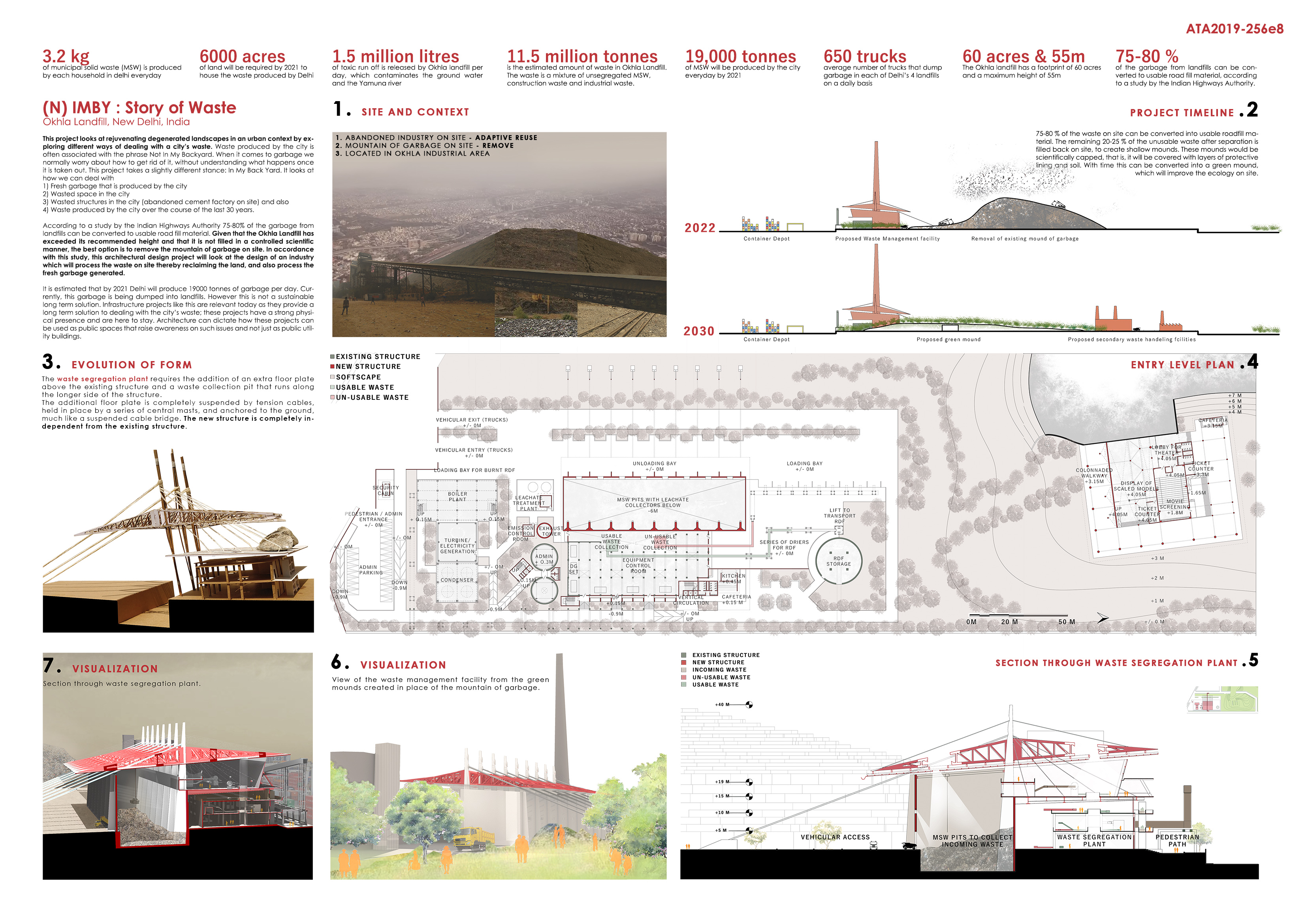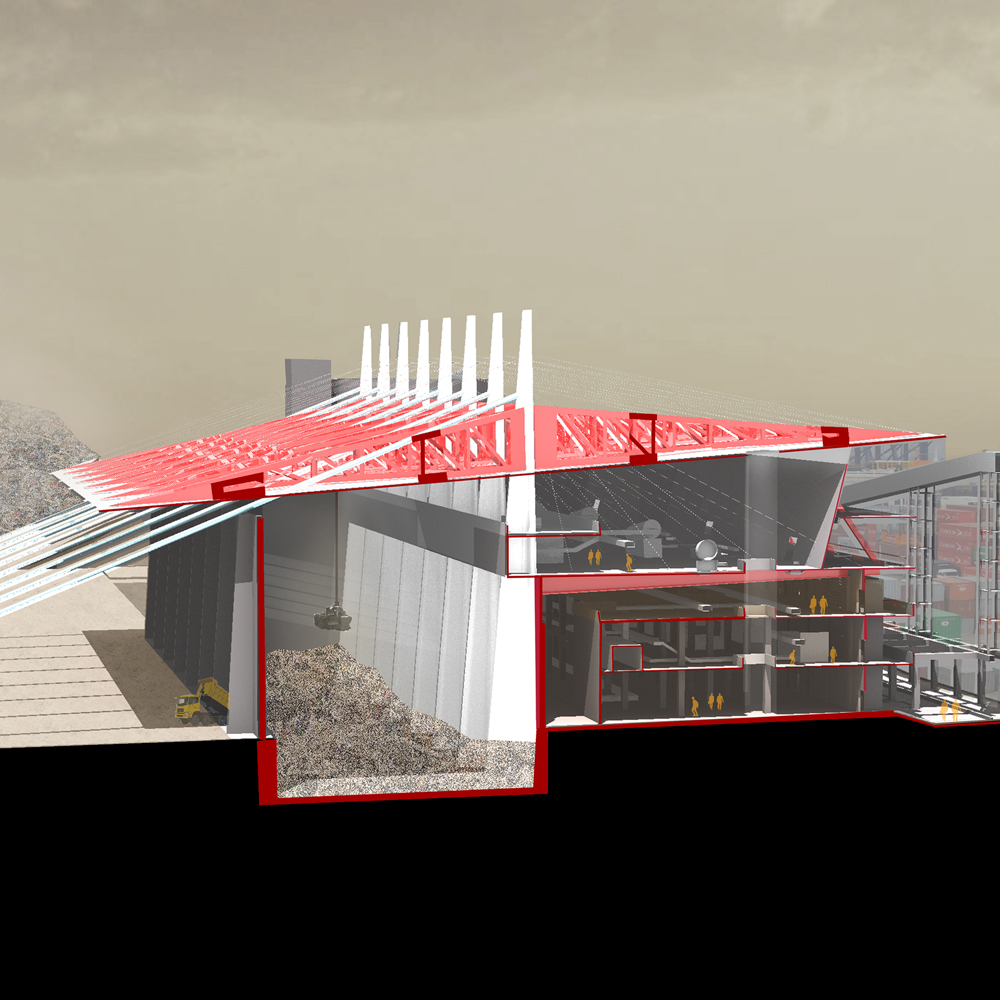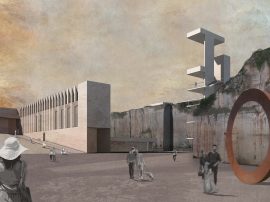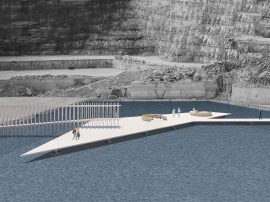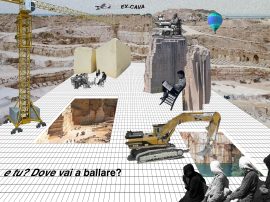This project looks at rejuvenating degenerated landscapes in an urban context, by exploring different ways of dealing with a city’s waste. According to a study by the Indian Highways Authority 75-80% of the garbage from landfills can be converted to usable road fill material. Given that the Okhla Landfill, in New Delhi, India, has exceeded its recommended height and that it is not filled in a controlled scientific manner, the best option is to remove the mountain of garbage on site. This architectural design project will look at the design of an industry which will process the waste on site, thereby reclaiming the land. An attempt at master planning the land, after the removal of the mountain of garbage, has also been made.
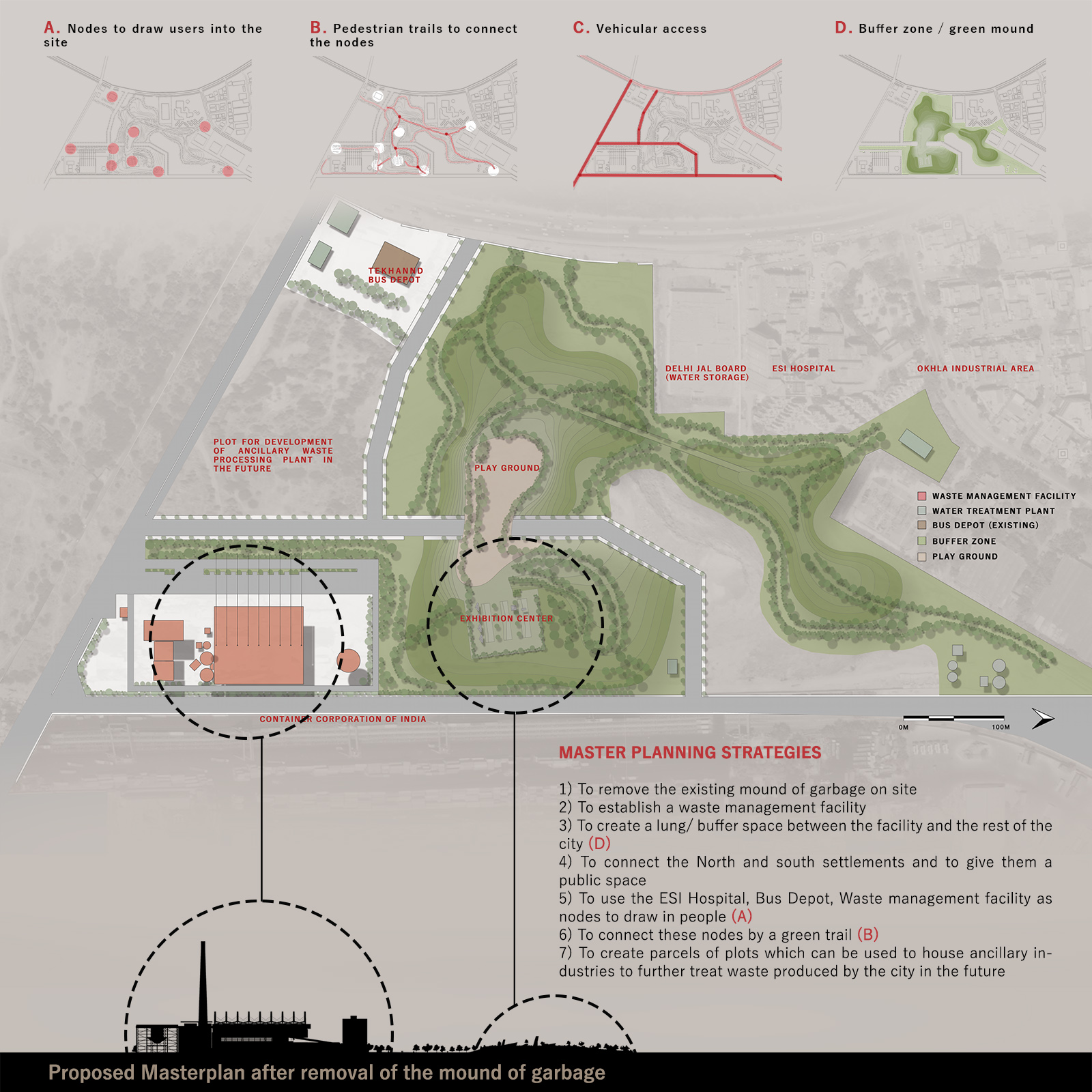
Waste produced by the city is often associated with the phrase Not in My Backyard. When it comes to garbage the only thing we worry about is getting rid of it, without understanding what happens once it is taken out. This project takes a slightly different stance: In My Back Yard. It deals with the design of a waste processing plant which will handle 1) Fresh Garbage that is produced by the city 2) Wasted space in the city 3) Wasted structures in the city (adaptive reuse of abandoned cement factory on site) and also 4) Waste produced by the city over the course of the last 30 years.
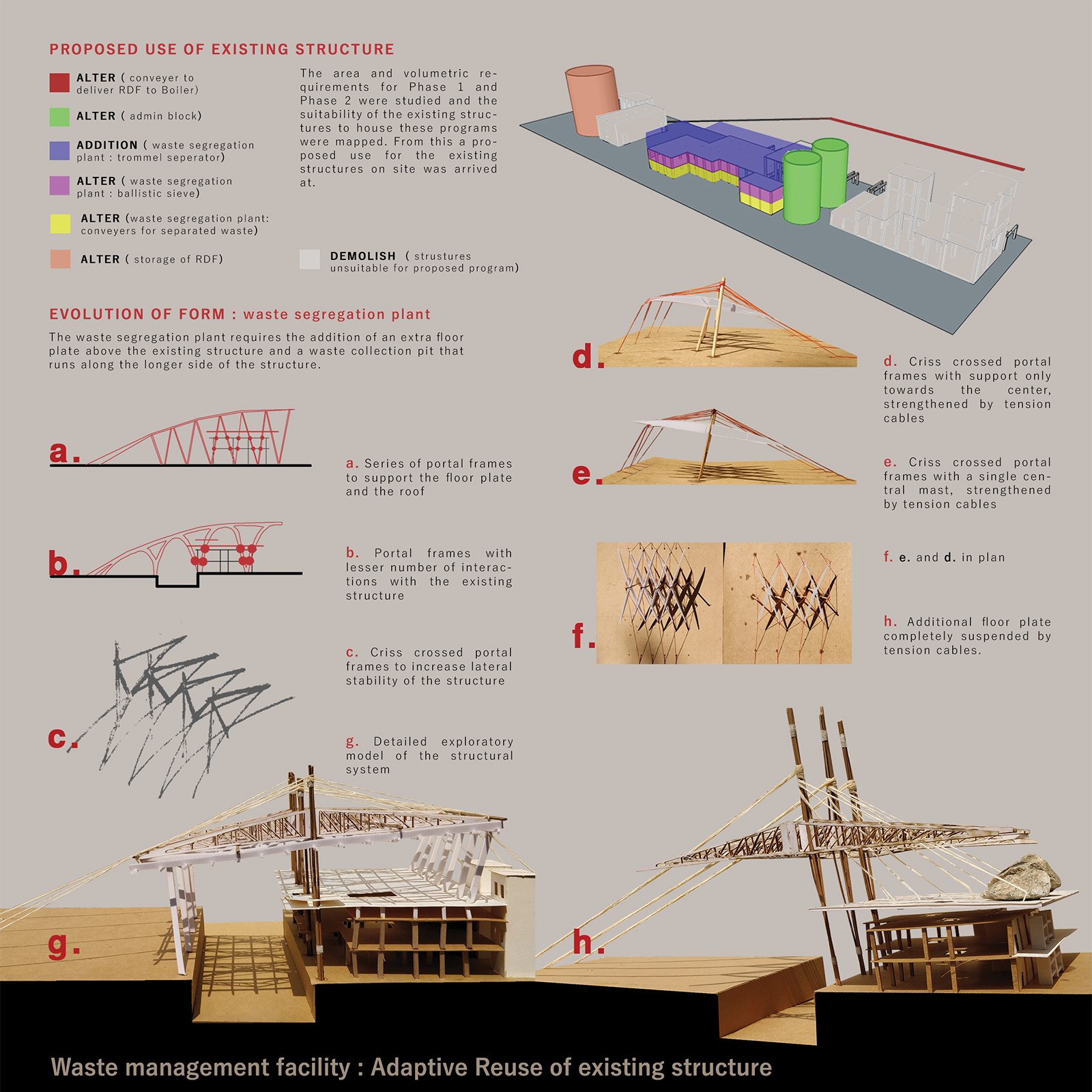
It is estimated that by 2021 Delhi will produce 19000 tonnes of waste per day. The current solution to this problem is to dump this waste into landfills. However this is not a sustainable long term solution. Infrastructure projects like this are relevant today as they provide a long term solution to dealing with the city’s waste. They have a strong physical presence and are here to stay. Architecture can dictate how these projects can be used as more than just public utility buildings but also as public spaces that raise awareness on such issues.
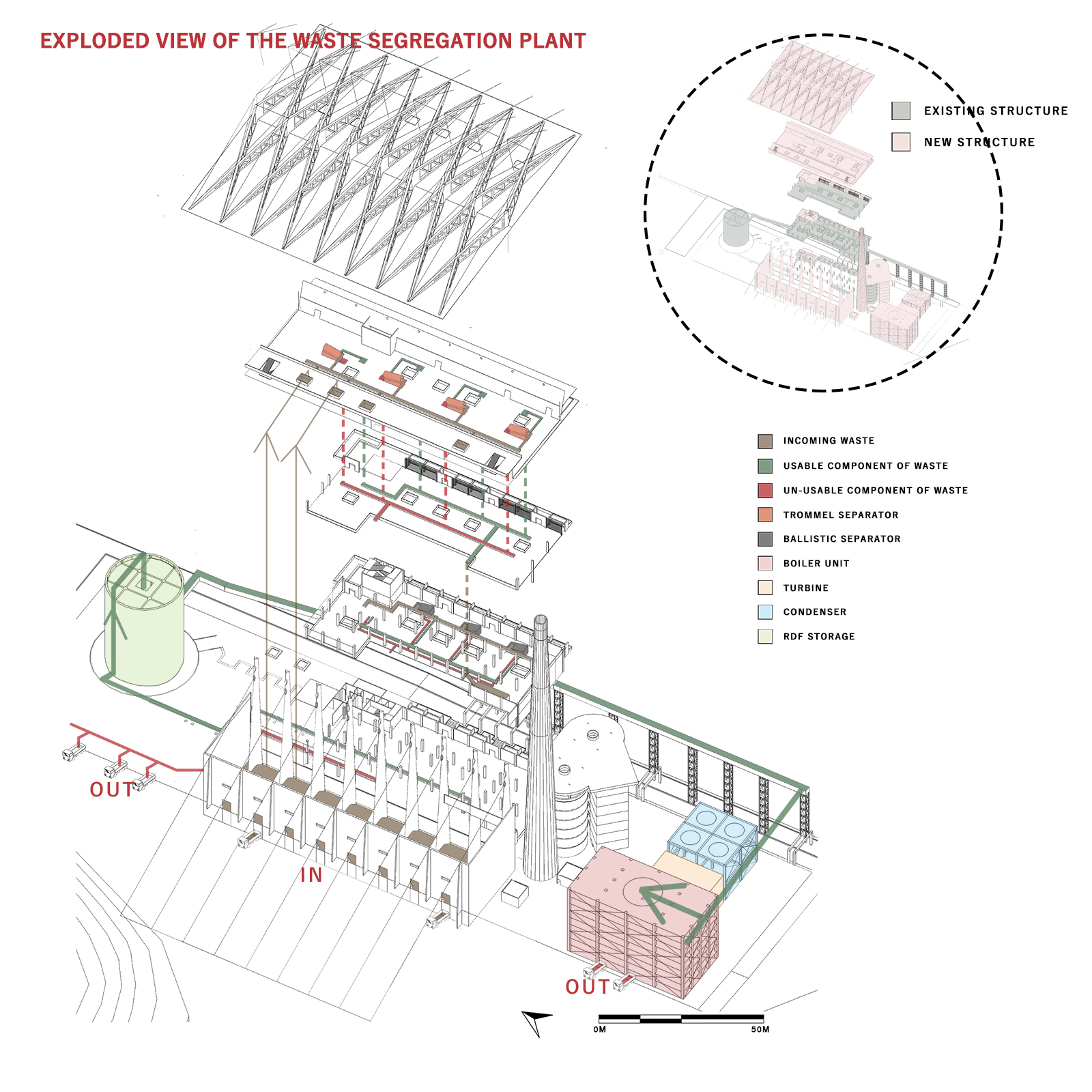
The Board:
